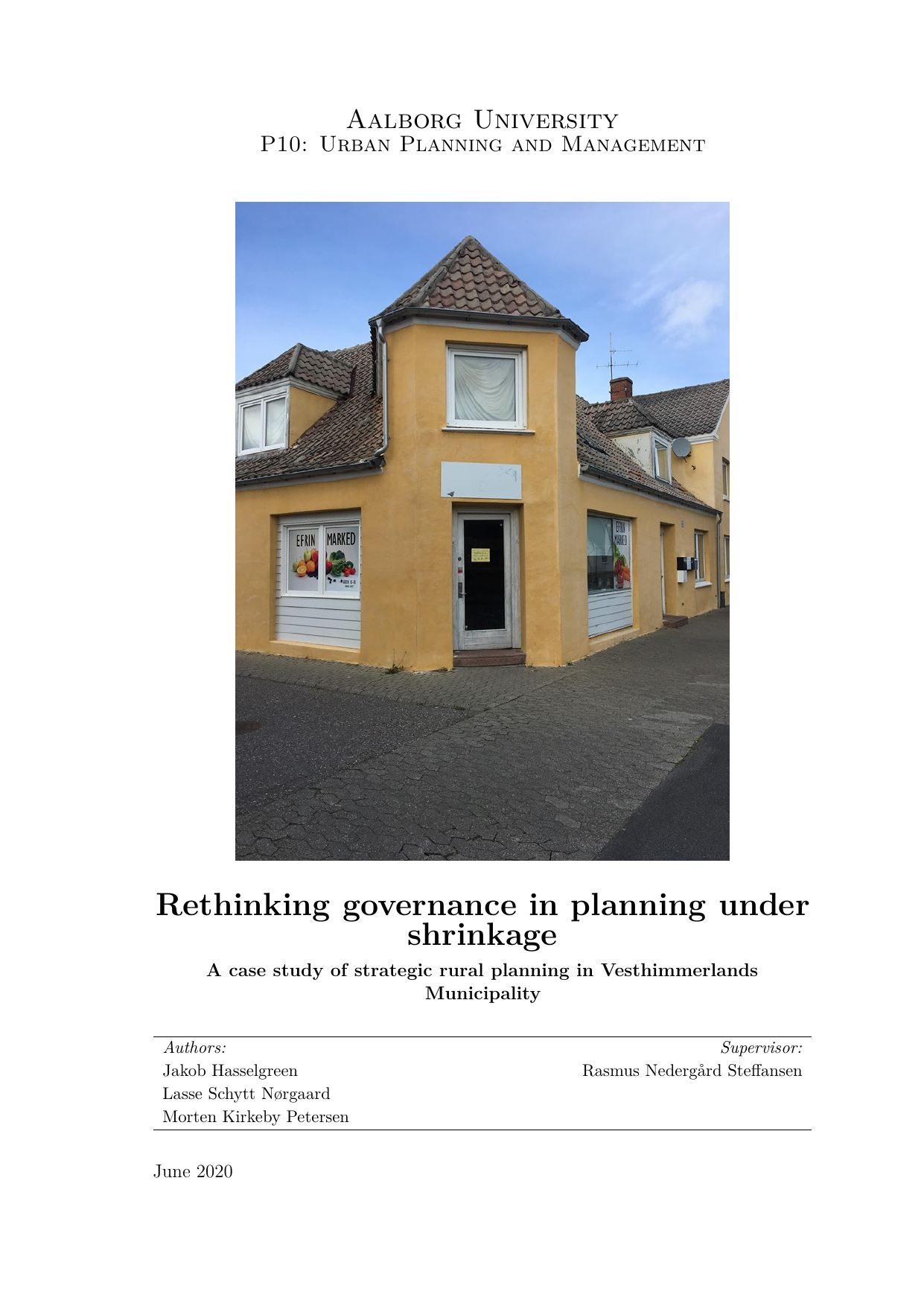
Rethinking governance in planning under shrinkage: A case study of strategic rural planning in Vesthimmerlands Municipality
Translated title
Rethinking governance in planning under shrinkage
Term
4. Term
Publication year
2020
Submitted on
2020-06-04
Pages
112
Abstract
Rural areas are challenged by continuous urbanisation as people move towards the bigger cities. This puts many rural areas in a state of shrinkage, characterised by a self-reinforcing loop of out-migration. Planning is not adequately suited to address these issues as it has become increasingly growth-centric over the past decades. Because of this planners of rural areas are confronted with the ever relevant question of what to plan for if not growth. Bottom-up reliant approaches are presented as the main solution, which in planning theory relates to ideas of communicative and collaborative planning. These are supplemented by theories of political-administrative systems, interactive governance, and metagovernance are utilised in an effort to understand the inherent possibilities and limitations of different approaches to governance. This leads to the research question How can a municipality transform their governance approach related to the strategic planning of rural communities, in order to better cope with, or even utilise a state of shrinkage?, which is researched in the context of Vesthimmerlands Municipality. Critical realism is applied as the meta-theoretical approach as it shapes the understanding of what can be researched and how. Institutional theory is applied in order to investigate how planning under shrinkage is different from the established contemporary practices. This is supplemented by the use of metagovernance as a tool for reflecting on how and for what reasons practices such as citizen collaboration are carried out. The conclusion is that the first step in transforming the governance approach is to acknowledge shrinkage, and the next is to establish a system of urban governance that encourages bottom-up initiatives and empowers citizens in order to create a sense of ownership that can guide future development.
Keywords
Documents
